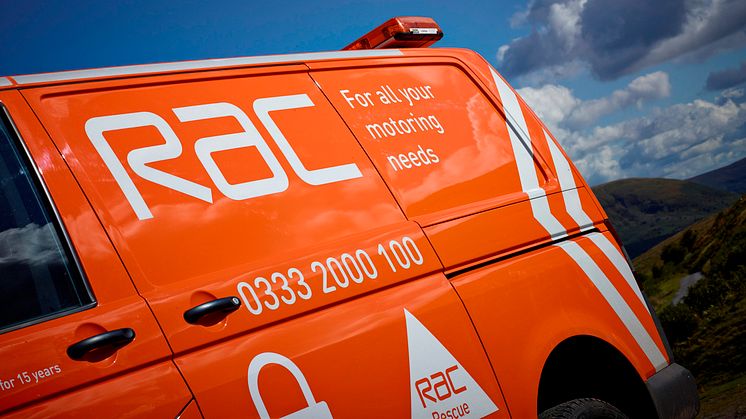
Press release -
Plummeting oil price may lead to petrol falling below £1 a litre
The RAC is optimistic that petrol could soon be selling for under £1 a litre as a result of the plummeting global oil price – a pump price last seen in late May 2009.
The price of Brent crude has fallen below the $60 a barrel mark for the first time since early July 2009 and is predicted to keep on dropping after OPEC (Organisation of the Petroleum Exporting Countries) indicated it will not cut production even if oil hits $40 a barrel.
In July 2009 the average price of unleaded was 103.09p a litre and diesel 104.22p, due to the slightly stronger pound which affects pump prices as fuel is traded in dollars. While the pound is currently a little weaker than it was then at $1.57 there is a very good chance forecourt prices will continue to fall as the price of a barrel of crude goes lower which the RAC is hopeful will lead to petrol being sold nationally for under £1 a litre in the first few months of the new year.
RAC fuel spokesman Simon Williams said: “What’s currently happening at the pumps with falling fuel prices is something many motorists will not remember seeing before. Talk of prices going up like a rocket and falling like a feather could not be further from the truth as retailers have been quick to pass on savings at the forecourt since the RAC forecast on 6 December that prices were due to come down by 7p a litre for petrol and 6p for diesel.
The RAC’s monitoring of fuel prices shows the average price of a litre of petrol is 116.9p (14 Dec 2014 – the latest available price) – 13.89p a litre cheaper than the start of the year when it was 130.79p – and diesel is 15.91p cheaper – 122.33p a litre now compared to 138.24p in January. On 15 December 2014 the average supermarket price of fuel was 114.26p for petrol and 120.18p for diesel.
Simon Williams added: “The cost of going to visit family and friends this Christmas will be the cheapest it’s been for nearly five years, but the prospect of petrol going below £1 a litre in the new year is incredible, particularly when prices at the beginning of 2014 seemed to be heading ever upwards.
“Current forecasts are for average petrol prices to fall to below 110p a litre in the next fortnight and diesel to drop to under 116p. At these average prices across the country the cheapest retailers will almost certainly be selling petrol for around 105p a litre, or even lower.
“It is, however, important to realise that the oil and fuel market can always change due to a number factors, including the strength of the pound against the dollar and the global production of oil. If the current oversupply situation remains then it will clearly be good news for motorists and businesses that rely on the road network. With the United Arab Emirates energy minister saying OPEC will not cut production even if oil falls as low as $40 a barrel, we have every reason to think petrol at under £1 early in 2015 is a very real prospect.
“It’s also important to remember that while the cost of fuel itself has fallen, it currently only represents around a third of the overall pump price with the lion share being made up of fuel duty and VAT. At £1 a litre duty would be 57.95p and VAT 16.67p, leaving the cost of the oil and retailers’ margin at 25.38p – meaning tax would be three quarters of the forecourt price.”
Motorists can keep abreast of fuel prices by visiting: www.rac.co.uk/advice/fuel-prices-explained
Ends
Topics
Notes to Editors
About the RAC
First formed in 1897, the RAC has been looking after the needs of its members and championing the interests of drivers for more than 120 years.
Today it has more than eight million members and is one of the UK’s most progressive motoring organisations, providing services for both private and business motorists. Whether it's roadside assistance, insurance, buying a used car, vehicle inspections and checks, legal services or up-to-the-minute traffic and travel information – the RAC offers a solution for all motoring needs. The RAC is committed to making motoring easier, safer, more affordable and more enjoyable for drivers and road users.
The RAC is the motorist’s champion and campaigns to support the interests of its members and UK drivers at a national level. This includes voicing concerns about the increasing cost of motoring, particularly the price of fuel and the high level of tax levied on it, advancing levels of road safety, and supporting the needs of all drivers, from young to old.
The RAC’s annual Report on Motoring – first published in 1989 – is one of a kind and provides a clear insight into the concerns and issues facing today’s motorists.
For the very latest news on UK fuel prices, check RAC Fuel Watch. It provides a comprehensive guide to the latest UK unleaded petrol and diesel prices – both at the wholesale level and at the pump - and tracks these prices daily to help drivers check if the price they pay to fill up is a fair one.

